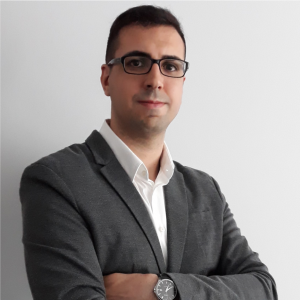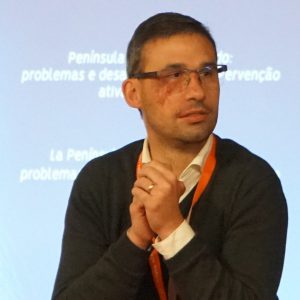WP2: Community-led Territorial Innovation Models
Starting month: month 1
End month: month 9
Objectives
The main objective of this WP is to establish a theoretical basis for the main themes covered by the project and to define a conceptual model for the other WPs. This framework will enable a better understanding of the different dimensions of Territorial Innovation in the Centro Region, especially when Smart Specialization Strategies are at stake and are used to structure investment and development strategies for the region.
Thus, the specific objectives for this WP are:
● Promote a better understanding of the main theoretical models of territorial innovation;
● Enlighten the impact of smart specialization strategies in promoting territorial innovation;
● Map / identify best practices and case studies of territorial innovation that can potentially be transferred to the Centro Region of Portugal.
WP 2 is organized as follows: (1) literature review; (2) identify specific governance features and development strategies, with a special focus in the areas of tourism, health and well-being; (3) provide a conceptual model; (4) identify specific cases, data, agents and instruments for research in the areas of tourism, health and well-being.
Description of Work
Task 2.1 – Theoretical frameworks underlining territorial innovation
Given the innovativeness of the proposed analysis which combines distinct topics – territorial innovation, public policies and networks, social innovation and community mediation – the first task of the project will be to conduct an in-depth literature review on the main theories and conceptual frameworks related to these central topics. Besides the academic contribution to consolidate existing knowledge in these topics, this systematic review aims to allow the team to detail the theoretical structure of the project, the research questions and the most important variables to be included in data collection processes ( WP3 and WP4). This will allow the identification of studies that contain similar analyzes in other regional contexts, which will potentially enable a comparative analysis.
The first task will be accomplished through an inventory of the most relevant articles in journals relevant to the research topics, followed by a meta-analysis of those papers. In addition, the development of a theoretical framework is crucial to map the concept of Territorial Innovation and its different dimensions by exploring different definitions found in the literature.
Task 2.2 – Challenges of territorial development under smart specialization strategies
This task aims to understand the impact and the challenges of smart specialization strategies, considering, in particular, the complex governance architecture of the Portuguese territory and the specificities of the domains of tourism, health and well-being. Therefore, the objectives of this task are twofold: (1) to understand the impact and the challenges of smart specialization strategies in Territorial Innovation and (2) to map and describe territorial governance in the Centro region, with special focus on tourism, health and well-being.
The analysis of the governance structures of the Centro region will allow to obtain a relevant output for the project, since it will provide a tool for the analytical framework to be developed in the following tasks of this WP.
Task 2.3 – Map best practices and case studies of territorial innovation
The main objective of this task is to identify and characterize best practices and case studies of territorial innovation. This benchmarking analysis will focus on specific public policy strategies in a European and national context focusing on territorial innovation (mainly in tourism, health and well-being). The same approach will be followed for mediation tools and strategies (digital, social innovation experiences, formal and non-formal education contexts). This task will focus on reviewing existing literature and case studies in the context of territorial innovation.
Task 2.4 – Conceptual framework for public policy strategies and mediation practices in territorial innovation
This task aims to propose a conceptual model to identify, analyze and discuss policy strategies and relevant mediation practices to promote territorial innovation in the Centro region, and thus provide the empirical elements to develop a Territorial Innovation Model and a policy advice tool.
Emphasis will be given to networking and mediation strategies relevant for territorial innovation, including its nodes such as agents, channels, subnetworks, links and info-communication aspects (Lovejoy & Saxton, 2012); mediation strategies addressing contexts, scenarios, roles and leadership issues as well as good practice in low-density national and international territories (identified in task 2.1.3), adding research dimensions related to the creation of participatory dynamics, and the empowerment of populations through informal and non-formal learning contexts, and educational opportunities that exist or can be created in the territory.
The model to be created will also include provisions for the development and implementation of performance indicators for territorial innovation (developed in WP4). Validation of the model will be achieved through discussions with focus group of experts.
This task includes the following steps: (i) to diagnose the role and potential of networks and mediation practices through a set of case studies from the Centro region and relevant international cases from low density territories, with a focus in the areas tourism and health and well-being; (ii) proposal, validation and consolidation of a conceptual framework to promote and assess networks and mediation strategies in territorial innovation.
Deliverables
All deliverables are available for reference on the Workpackages and Results page.

Filipe Teles
WP Coordinator
Filipe Teles
Instituição: GOVCOPP, Departamento de Ciências Sociais, Políticas e do Território, Universidade de Aveiro
Email: filipe.teles@ua.pt
Docente no Departamento de Ciências Sociais, Políticas e do Território, na Universidade de Aveiro. Desempenha, atualmente, a função de Pró-reitor para o desenvolvimento regional e políticas de cidade. Doutorado em Ciências Políticas e membro da Unidade de Investigação em Governança, Competitividade e Políticas Públicas (GOVCOPP), onde tem desenvolvido trabalho de investigação em governação e administração local e regional, reformas territoriais, liderança política e inovação.
É autor e coautor de vários artigos em revistas académicas de referência. As publicações mais recentes incluem o livro “Local Governance and Inter-municipal Cooperation” (2016: Palgrave, UK) e a coedição dos volumes “Inter-municipal Cooperation in Europe: Institutions and Governance” e “Sub-Municipal Governance in Europe: Decentralization Beyond the Municipal Tier”, a publicar em 2018, pela mesma editora.
É membro da Associação Portuguesa de Ciência Política, da Political Studies Association (Reino Unido), e – atualmente – integra o Governing Board da European Urban Research Association, o Steering Committee of the Local Government and Politics Standing Group do European Consortium for Political Research, e o Board do Research Committee on Comparative Studies on Local Government and Politics da International Political Science Association.
Função no Programa CeNTER: Investigador Responsável e Coordenador do Programa (PI); Coordenador do WP1 e WP2.
Principais tarefas: Responsável pela coordenação científica e gestão do projeto.
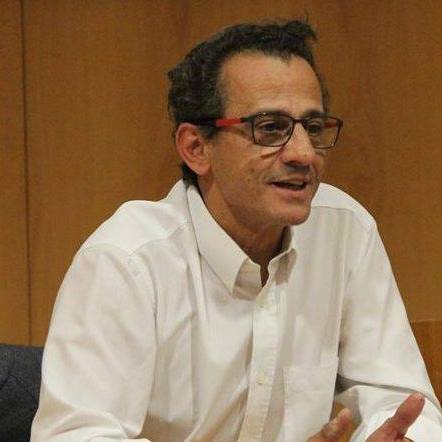
Fernando Nogueira
WP Member
Fernando Manuel Martins Nogueira
Instituição: Departamento de Ciências Sociais, Políticas e do Território, Universidade de Aveiro
Email: f.nogueira@ua.pt
Doutorado em Ciências Sociais pela Universidade de Aveiro (UA), mestre em Engenharia Urbana pela Universidade de Coimbra e licenciado em Planeamento Regional e Urbano pela Universidade de Aveiro. É Professor Auxiliar na UA, no Departamento de Ciências Sociais, Políticas e do Território, e vice-coordenador do Mestrado em Planeamento Regional e Urbano. Participou em projetos de investigação e extensão:
Investigação: “P-RIDE” – Portugal: Integração Regional da Demografia e da Economia, COMPETE- PTDC/ATP-DEM/0441/2014 (2016-1019); “DONUT” – Factores determinantes da procura de habitação em Portugal (2011-13) – PTDC/AUR-URB/100592/2008; “ULYSSES” – Using applied re-search results from ESPON as a yardstick for cross-border spatial development planning, para European Observation Network, Territorial Development and Cohesion (2010- 2013).
Extensão: “Participação das Comunidades no Planeamento” (Erasmus+; 2014-2016); Planos estratégicos territoriais (ADXTUR – Aldeias do Xisto e dos Municípios da Sertã, Ílhavo e Vagos) (2013-2016); “Estratégia de Eficiência Coletiva PROVERE da Rede das Aldeias do Xisto (em curso).
Interesses de investigação: Planeamento Estratégico, Participação Pública, Governação e Políticas Públicas, Métodos de Apoio à Decisão.
Função no Programa CeNTER: Membro dos WP2, WP3 (3.1) e WP5.
Principais tarefas: Estado da arte e mapeamento de boas práticas relativos a processos de inovação territorial, bem como de práticas de intermediação e animação em rede de agentes em processos de inovação territorial em contexto de governação multinível.

Margarida Almeida
WP Member
Ana Margarida Pisco Almeida
Instituição: DigiMedia, Departamento de Comunicação e Arte, Universidade de Aveiro
Email: marga@ua.pt
Ana Margarida Pisco Almeida é doutorada em Ciências e Tecnologias da Comunicação e tem vindo a desenvolver atividades de investigação relacionadas com “inclusão digital”, “novos media e necessidades especiais”, “comunicação e saúde”, “ehealth” e “educação e promoção da saúde utilizando as TIC”, na Unidade de Investigação DigiMedia.
É Professora Auxiliar no Departamento de Comunicação e Arte da Universidade de Aveiro, Portugal, e leciona nos cursos de: “Licenciatura em Novas Tecnologias de Comunicação”, “Mestrado em Comunicação Multimédia”, “Programa Doutoral em Multimédia e Educação” e “Programa Doutoral Informação e Comunicação em Plataformas Digitais”. Neste âmbito, tem vindo a supervisionar alunos de mestrado e doutoramento, de forma alinhada com os seus principais interesses e esteve envolvida em diferentes projetos de investigação e iniciativas científicas. Possui vários artigos e capítulos de livros publicados, sendo também revisora em diversos jornais nacionais e internacionais.
Função no Programa CeNTER: Membro dos WP 2, 3, 4 e 5
Principais tarefas: Estudo das redes e estratégias de mediação na inovação territorial: o papel dos media digitais e das tecnologias emergentes na inovação territorial; Prototipagem e validação de uma plataforma de mediação piloto para a inovação territorial.
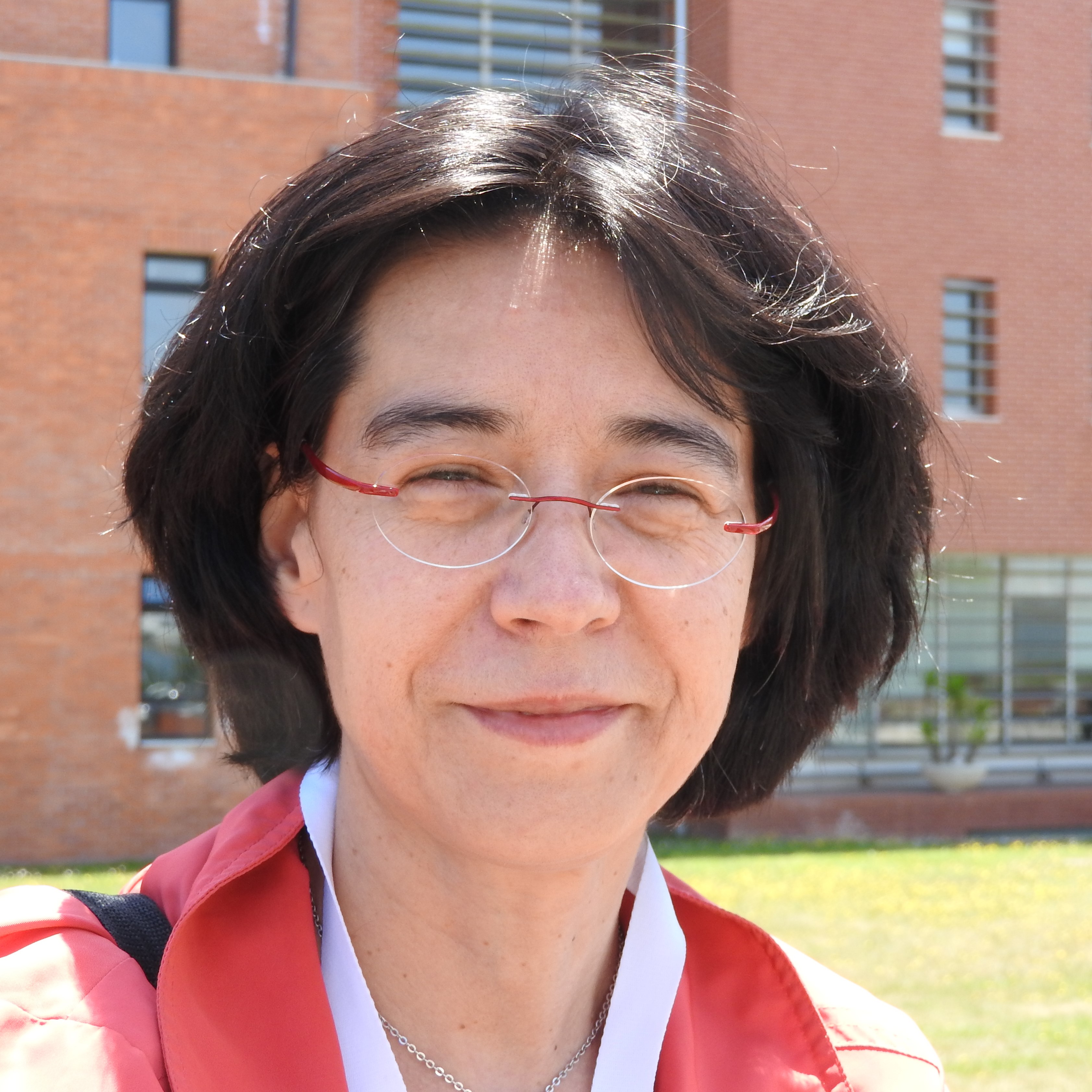
Anabela Botelho
WP Member

Anabela Botelho
Instituição: Departamento de Economia, Gestão, Engenharia Industrial e Turismo, Universidade de Aveiro
Email: anabela.botelho@ua.pt
Anabela Botelho é licenciada em Economia (1992) pela FEP, doutora em Economia (1998) pela Universidade da Carolina do Sul, EUA, com Agregação em Economia (2006) na especialidade de Métodos Quantitativos pela Universidade do Minho. Desde 2014 é Professora Catedrática do DEGEIT-UA. No decurso da sua carreira foi docente e/ou investigadora em várias universidades, nomeadamente nas Universidades do Minho e do Porto, e nas Universidades da Califórnia e da Central Florida nos EUA. Entre outros cargos institucionais, exerce atualmente as funções de Coordenadora da Área Científica de Economia do DEGEIT, Diretora do Programa Doutoral em Ciências Económicas e Empresariais da UA, Coordenadora do Grupo de Investigação em Competitividade, Inovação e Sustentabilidade da GOVCOPP, membro efetivo do Conselho Superior de Estatística (CSE) por indicação do CRUP e membro efetivo da Secção Permanente do Segredo Estatístico do CSE. É membro do corpo editorial da revista científica “Strategic Behavior and the Environment”. Os resultados da sua investigação têm sido publicados em reputadas revistas científicas internacionais, bem como no livro “Experimental Economics” (2017), editado e publicado pela World Scientific.
Função no Programa CeNTER: Coordenadora do WP 4
Principais tarefas: Membro da equipa de Coordenação do CeNTER. Coordenadora do WP4.
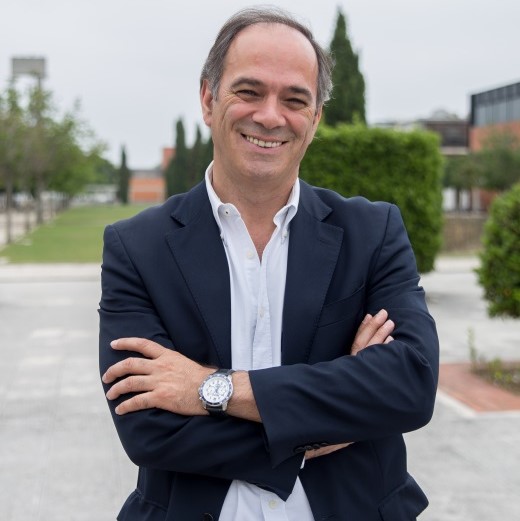
Carlos Costa
WP Member
Carlos Costa
Institution: University of Aveiro, Department of Economics, Management, Industrial Engineering and Tourism (DEGEIT)
Email: ccosta@ua.pt
Dr. Carlos Costa is Full Professor (Professor Catedrático), Head of the Department (School) of Economics, Management, Industrial Engineering and Tourism (DEGEIT) of the University of Aveiro, Editor of the Journal of Tourism & Development (Revista de Turismo e Desenvolvimento) and Associate Editor of the Tourism Review, Journal of Destination Marketing Management and Journal of Hospitality and Tourism Management. He holds a PhD and MSc in Tourism Management (University of Surrey, UK), and a BSc in Urban and Regional Planning (University of Aveiro, Portugal). Carlos is the leader of the PhD Tourism Programme of the University of Aveiro and is also the head of the Tourism Research Centre of the University of Aveiro (included in GOVCOPP and evaluated by the Portuguese Government with ‘Excellent’). He is also Scientific Coordinator of the “idtour-unique solutions” – tourism start up company (private sector) based at the University, responsible for the transference of knowledge and innovation to the tourism sector. Carlos is involved in a number of national and international tourism projects. Carlos works as consultant for Portugal’s National Agency of Accreditation (A3Es), National Foundation for Science and Technology (FCT) and for other international organisations.
Role in the CeNTER Program: Member of WP 2, 3, 4 e 5.
Main tasks:

Sara Moreno Pires
WP Member
Sara Moreno Pires
Instituição: Departamento de Ciências Sociais, Políticas e do Território, Universidade de Aveiro
Email: sarapires@ua.pt
Sara Moreno Pires é doutorada em Ciências Aplicadas ao Ambiente (Universidade de Aveiro (UA)), Mestre em Desenvolvimento e Planeamento (University College London, Reino Unido) e Licenciada em Economia (Universidade de Coimbra).
É Investigadora do Departamento de Ciências Sociais, Políticas e do Território e da Unidade de Investigação em Governança, Competitividade e Políticas Públicas (GOVCOPP) da UA. A sua investigação no âmbito do Programa CeNTER centra-se na análise de instrumentos de políticas públicas promotores de inovação territorial e na compreensão do papel dos atores regionais na construção de novas plataformas de conhecimento do território.
Entre 2016 e 2017, desenvolveu trabalho de pós-doutoramento no GOVCOPP sobre avaliação da qualidade da governação local para o desenvolvimento sustentável em Portugal. Foi docente da Faculdade de Direito de Coimbra nos cursos de Administração Pública entre 2002 e 2016. Tem centrado a sua investigação nas políticas de desenvolvimento sustentável e no papel dos Indicadores de Desenvolvimento Sustentável na governação e no desenvolvimento local. Colabora em diversos projetos de investigação nacionais e internacionais e os seus trabalhos têm sido publicados em revistas científicas internacionais.
Função no Programa CeNTER: Investigadora. Participa nos WP2 e WP5.
Principais tarefas: Contribuir para a análise e compreensão dos desafios e oportunidades da inovação territorial na Região Centro e para a definição de um modelo de inovação territorial suportado por um sistema de avaliação e monitorização, através de um Observatório de Capital Humano e de desempenho da inovação regional; Contribuir para a consolidação de conhecimento nas áreas do planeamento e estratégias de desenvolvimento territorial, governação local e regional e políticas públicas de inovação, nas dimensões teórica, aplicada e de divulgação científica.

Alexandra Polido
WP Collaborator
Alexandra Polido
Instituição: Departamento de Ciências Sociais, Políticas e do Território, Universidade de Aveiro
Email: a.polido@ua.pt
Alexandra Polido é doutorada em Ciências do Ambiente e da Sustentabilidade pela Universidade NOVA de Lisboa. Entre junho de 2017 e março de 2019 desenvolveu pós-doutoramento na Universidade de Aveiro, no Departamento de Ciências Sociais, Políticas e Territoriais – unidade de investigação em Governança, Competitividade e Políticas Públicas (GOVCOPP) relacionado com o Programa CeNTER – Redes e Comunidades para a Inovação Territorial.
Anteriormente, desenvolveu investigação sobre avaliação de impacto ambiental e de sustentabilidade de políticas, planos e programas públicos, com foco em avaliação ambiental estratégica em contextos de nível local e regional. A investigação desenvolvida tem uma forte componente interdisciplinar ligando diferentes linhas de investigação como políticas públicas, planeamento regional, governança e transformações institucionais, governança ambiental e responsabilidade social.
É membro e corresponsável pela secção Students and Young Professionals da International Association for Impact Assessment (IAIA).
Função no Programa CeNTER: Colaboração com o WP2.
Principais tarefas: Promover um melhor entendimento sobre os principais modelos teóricos de inovação territorial; Evidenciar o impacto das estratégias de especialização inteligente na promoção da inovação territorial; Explorar a adequação das abordagens teóricas atuais na avaliação da inovação territorial face à realidade portuguesa; Contribuir para aumentar a consciência e visibilidade das características distintivas e resultados da inovação territorial.
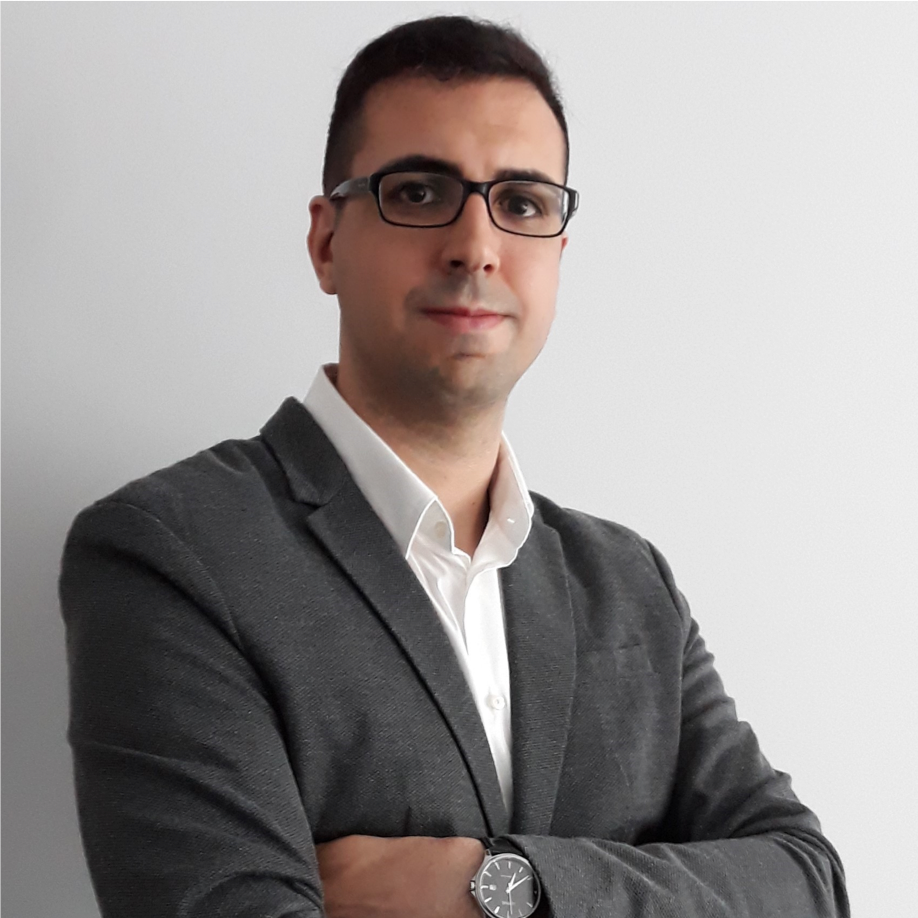
Pedro Silva
WP Collaborator
Pedro Silva
Institution: Department of Social, Political and Territorial Sciences, University of Aveiro
Email: silva.pedro@ua.pt
Pedro Silva has a BSc and MSc in Management (University of Aveiro) and a PhD in Marketing and Strategy (joint program from the University of Minho, University of Aveiro and University of Beira Interior). He has previously participated in research projects in the field of firms’ internationalization and worked as consultant in innovation projects. He was a research fellow for the Fundação para a Ciência e a Tecnologia in a study about industry and firm dynamics in Portugal.
Pedro was a Postdoctoral Fellow at Integrated Program “CeNTER” between June 2019 and March 2020.
Role in the CeNTER Programme: Collaborator (WP2).
Main tasks: Contribute to the development of a theoretical framework of territorial innovation; Promote a better understanding of the different dimensions of territorial innovation in the Centro Region; Enlighten the impact of smart specialization strategies in promoting territorial innovation.
Team
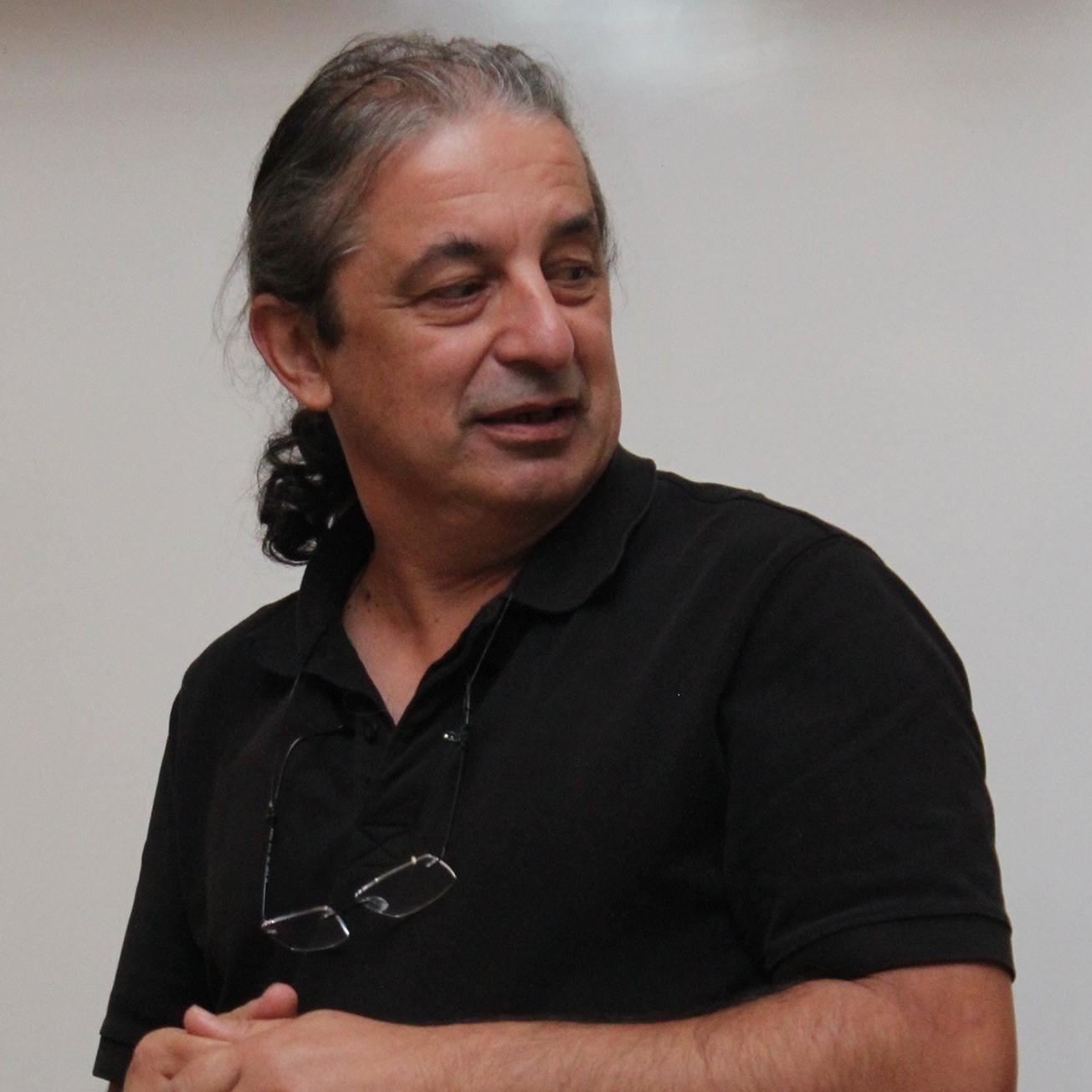
Carlos Rodrigues
WP Member

Carlos Rodrigues
Instituição: Departamento de Ciências Sociais, Políticas e do Território, Universidade de Aveiro
Email: cjose@ua.pt
Doutorado em Ciências Sociais pela Universidade de Aveiro (UA) e Diretor do Departamento de Ciências Sociais, Políticas e do Território da UA. É ainda coordenador do Centro de Estudos Asiáticos e do Mestrado em Estudos Chineses. Participou em vários projetos nacionais e internacionais, designadamente nos campos dos sistemas territoriais de inovação e das relações entre o ensino superior e o desenvolvimento regional. É coordenador local do projeto RUNIN – The Role of Universities in Innovation and Regional Development (Horizon 2020, Marie Curie Innovative Training Networks), que decorrerá até 2019.
Função no Programa CeNTER: Cocoordenação da WP2.
Principais tarefas: Construção de um modelo de inovação territorial para a Região Centro.

Fernando Ramos
WP Member

Fernando Ramos
Institution: DigiMedia-Digital Media and Interaction Research Centre, University of Aveiro
Email: fernando.ramos@ua.pt
Degree on Electronics and Telecommunications Engineering (1979), PhD on Electrical Engineering/Telecommunication Systems (1992), Aggregate title on Communication and Art/Communication Sciences and Technologies (2001).
Full Professor of Communication Sciences and Technologies at the University of Aveiro (since 2003). Scientific Coordinator of DigiMedia-Digital Media and Interaction Research Centre. Former Director of CEMED-Multimedia and Distance Education Centre (1998-2009). Former Director of UNAVE, the vocational training and lifelong learning unit of the University of Aveiro (2004-2014). Former Director of the Departments of Electronics and Telecommunications (1994-1999) and Communication and Art (2001-2005). Former member of the Executive Committee of ASLERD-Association for Smart Learning Ecosystems and Regional Development (2015-2017).
Scientific Coordinator of more than 30 R&D projects on topics in the fields of Multimedia Communication Systems, Technology Enhanced Learning, Distance Education and Digital Media and Territory Based Innovation.
Author/co-author of 220 scientific papers published in international and national journals and conferences.
Role in the CeNTER Programme: Coordinator of WP 3. Researcher in the other WP.
Main tasks: Member of the CeNTER Coordination Board.Coordinator of WP3.
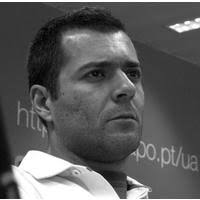
Luís Pedro
WP Member
Luís Pedro
Institution: University of Aveiro, Department of Communication and Art
Email: lpedro@ua.pt
Luís Pedro is an Assistant Professor at the Department of Communication and Arts, University of Aveiro, Portugal, where he lectures in Communication Sciences and Technologies undergraduate, graduate and doctoral courses.
He is an integrated member of the DigiMedia research group and his research interests are related to social media development, integration and assessment in educational and training contexts, which have been developed in >40 MSc and 5 PhD supervisions and through the coordination and participation in externally funded research projects. He is (co-)author of 6 books in the topic of Multimedia Technologies for secondary level teaching and learning and has also (co-)authored over 50 scientific publications (journals/conference papers and book chapters) on subjects related with ICT, EdTech, Social Media, TEL and PLEs.
He is a reviewer in national and international journals and he also serves as a Program Committee member for various national and international conferences in the referred scientific fields.
His personal web page can be found at: http://about.me/lpedro.
Role in the CeNTER Program: Member of WP 2, 3, 4 and 5.
Main tasks: Task 3.2: The role of digital media and emerging technologies in territorial innovation; Task 3.3. Prototyping and validation of a mediation pilot platform for territorial innovation

Rui Augusto da Costa
WP Member
Rui Augusto da Costa
Instituição: Departamento de Economia, Gestão, Engenharia Industrial e Turismo, Universidade de Aveiro
Email: rui.costa@ua.pt
Rui Costa, licenciou-se em Gestão e Planeamento em Turismo na Universidade de Aveiro (UA) em 1998, concluiu o Mestrado em Inovação e Políticas de Desenvolvimento em 2005 e doutorou-se em Turismo na mesma Universidade em 2012.
Desempenha as funções de Professor Auxiliar da área do Turismo no Departamento de Economia, Gestão, Engenharia Industrial e Turismo da UA. É membro da Comissão Executiva do DEGEIT e também membro integrado da Unidade de Investigação em Governança, Competitividade e Políticas Públicas (GOVCOPP), no Grupo de Investigação em Turismo e Desenvolvimento.
Desenvolve a sua investigação na área do planeamento e projeto em turismo, redes, governança e políticas públicas, dinâmicas territoriais de investimento e financiamento das pequenas e microempresas do sector do Turismo. Participa em vários projetos de investigação aplicada de âmbito nacional e internacional, e é autor e coautor de diversos artigos em revistas nacionais e internacionais.
É também membro do Conselho Editorial da Revista Turismo & Desenvolvimento (Journal of Tourism and Development), e membro da Comissão Organizadora da Conferência Internacional INVTUR.
Função no Programa CeNTER: Membro dos WP2, WP3, WP4 e WP5.
Principais tarefas: Estudar como os aglomerados urbanos-rurais e o turismo urbano podem potenciar o desenvolvimento e a competitividade das zonas de baixa densidade demográfica adjacentes; Entender a identidade cultural como fator de ligação entre o turismo em zonas de baixa densidade demográfica, os aglomerados urbanos e adjacentes; Promover a criação de redes competitivas entre as zonas de baixa densidade e as zonas urbanas com enfoque na preservação da identidade cultural comum e na criatividade.

Rui Vieira
WP Member
Rui Marques Vieira
Instituição: Departamento de Educação e Psicologia, Universidade de Aveiro
Email: rvieira@ua.pt
Doutorado em Didática, desde 2004 é Professor na Universidade de Aveiro, onde tem desenvolvido a sua docência particularmente nos mestrados (2º Ciclos) e doutoramentos (3º Ciclo) na área da Educação. É membro do Centro de Investigação Didática e Tecnologia na Formação de Formadores [CIDTFF] da Universidade de Aveiro, onde tem desenvolvido estudos de investigação na área da Formação de Professores; desenvolvimento curricular, com destaque para a dimensão das Capacidades de Pensamento Crítico; Educação em Ciências e Educação para o Desenvolvimento Sustentável. Tem participado em vários estudos e projetos de investigação, como, por exemplo, no estudo Europeu “University Educators for Sustainable Development” (UE4SD – reference 540051-LLP-1-2013-1-UK-ERASMUS-ENW). É autor de várias comunicações, artigos e tem publicado vários livros nas áreas acima referidas.
Função no Programa CeNTER: Membro dos WP 2, 3, 4 e 5.
Principais tarefas: Validação de todas as atividades educativas e formativas.
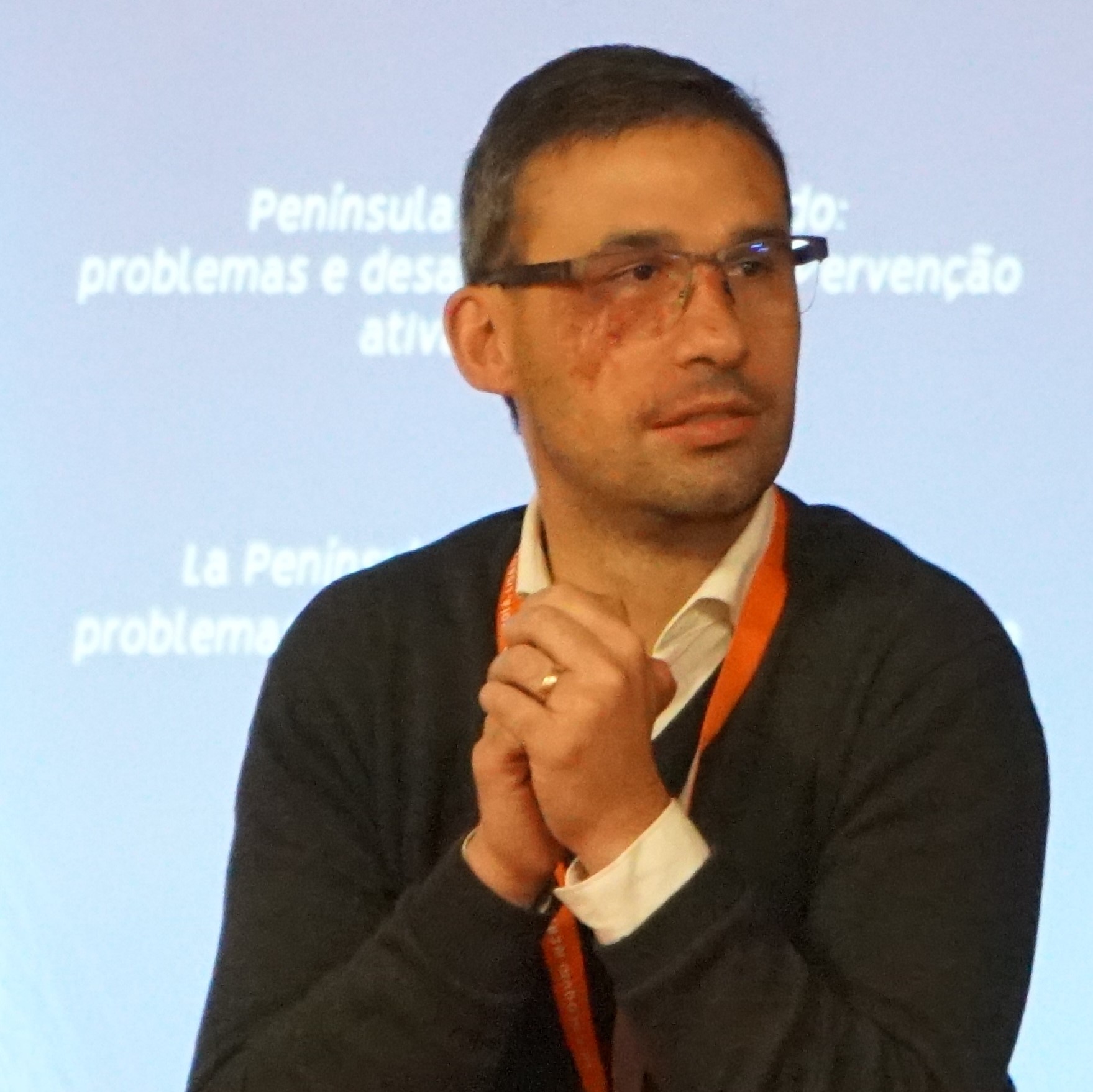
Pedro Chamusca
WP Member
Pedro Chamusca
Institution: Department of Social, Political and Territorial Sciences, University of Aveiro
Email: pedrochamusca@ua.pt
PhD in Geography at the FLUP; Professionally qualified in Geographic Information Systems (GIS); and Trainer certified by the Scientific and Pedagogical Council for Continuous Training and the Institute for Employment and Professional Education. He is the author of more than 60 scientific publications and develops research on topics related to urban geography, GIS, governance, planning, tourism and spatial planning. He is a member of the Portuguese Association of Geographers (APG), and has coordinated several projects of knowledge application, in areas associated with strategic planning, spatial planning, development and commercial urbanism.
Role in the CeNTER Programme: Postdoctoral Fellow in the Territorial Cohesion Observatory / WP2.
Main tasks: To contribute to the expected results of CeNTER Programme on the scope of the implementation of the Territorial Cohesion Observatory, an iniatiative of CCDRC which scientific coordination is an UA responsability.
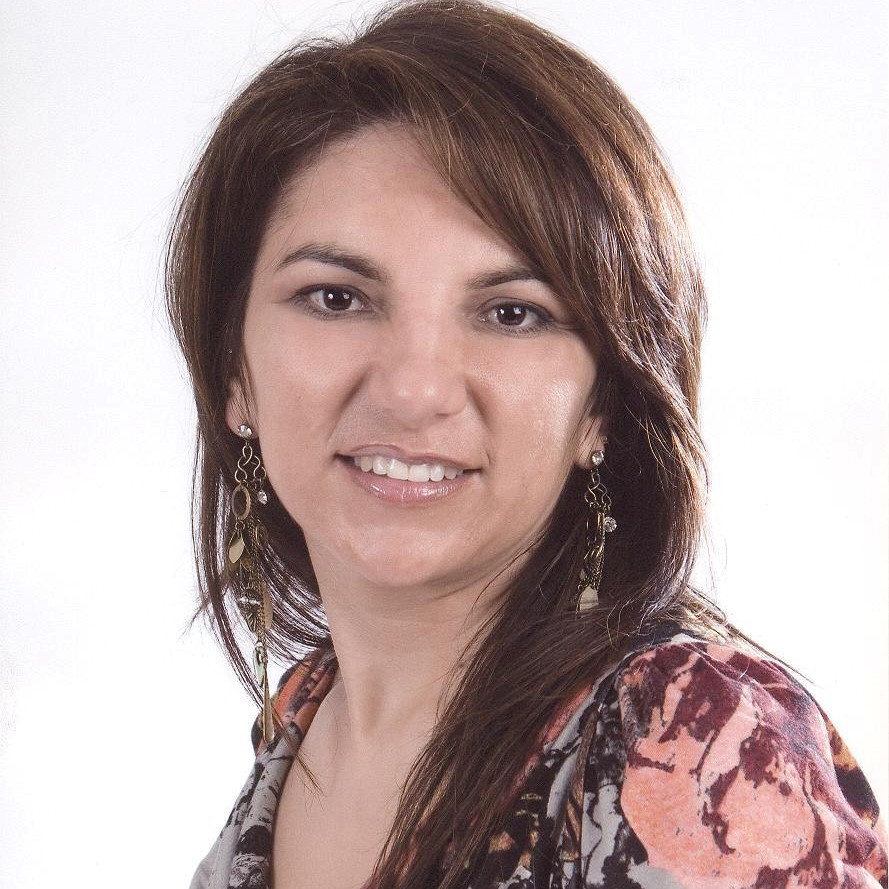
Dina Ramos
WP Collaborator
Dina Ramos
Instituição: Departamento de Economia, Gestão, Engenharia Industrial e Turismo, Universidade de Aveiro
Email: dinaramos@ua.pt
Investigadora de pós-doutoramento no projeto CeNTER da Universidade de Aveiro (UA) entre setembro de 2017 e agosto de 2019. Professora Auxiliar Convidada da Universidade de Aveiro (tempo parcial). Doutora em Turismo pela Universidade de Salamanca (reconhecido em Portugal na Universidade de Aveiro), Grau de Suficiência Investigadora em Novos Recursos e Sustentabilidade em Turismo, Licenciada em Gestão. Investigadora do Grupo de Investigação em Zonas Costeiras da UA e membro da Unidade de Investigação em Governança, Competitividade e Políticas Públicas (GOVCOPP) da UA.
Funções no Programa CeNTER: Colaboração com o WP2.
Principais tarefas: Proceder à revisão de literatura sobre turismo, modelos turísticos, competitividade, aglomerados urbanos, turismo de baixa densidade demográfica e turismo de saúde e bem estar; Identificar as características específicas para a estratégia de desenvolvimento com foco especial nas áreas de turismo e saúde e bem-estar; Elaborar o modelo de desenvolvimento; Identificar casos, dados, agentes e instrumentos específicos para pesquisa nas áreas de turismo e saúde e bem-estar.




